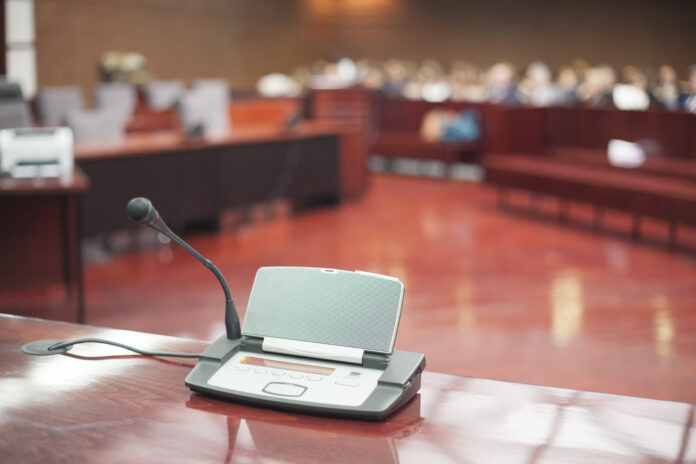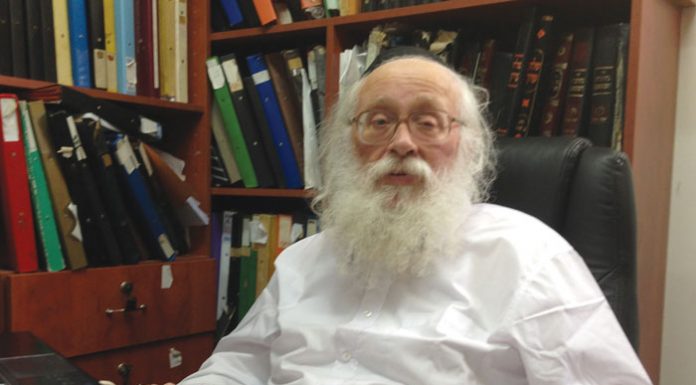In October 2021, with COVID still raging around the world, I receive a pale blue letter from the New Jersey courts requesting my participation as a juror. An instinctive dread sets in. Right away my mind flings about for excuses to get out of it, but all the old reasons no longer hold: I’m not nursing or taking care of any young children (in fact, they’re all adultish or on the cusp), I’m not undergoing intense physical therapy for my frozen shoulder, and now I can actually afford to miss work.
I think, why not? I look more closely at the summons and realize the jury selection and court sessions will take place on Zoom. How convenient is that? Besides, I don’t know anyone who has ever been on a Zoom jury, and I feel excited at the prospect of being one of the first. And why not do the right thing after years of evading jury duty—and it is called “duty” for a reason, right? In answering this summons, I can retroactively erase years of guilt.
For the first time ever, I skip the summons section that asks you to explain the reason you should be exempted. Instead, I check yes—can do, available, here I am.
Day one
Three weeks later, I’m clicking on the Zoom link and entering the New Jersey courts two minutes late, thanks to a Zoom snafu, but it hardly registers; a tedious roll call is in process. I see around 200 participants listed. Everyone looks 30 years younger than me; when did that happen? Names are called and voices answer in different accents—Indian, Latino, Brooklyn, New ‘Joysey,’ here and there Chinese and Russian, but mostly New Joysey. I feel like I’m meeting an America I don’t normally get to know or even share a driveway with.
Hunger suddenly registers in me. Powerful hunger. I’m doing something called intermittent fasting, supposedly for health reasons, but really to fit comfortably into a gown at my son’s chasunah ten weeks from now. I’m supposed to break the fast now but can’t, because I have yet to spot a single person eating among all 200 faces. But now I’m dying of thirst, too. I try to position the screen so that I can peel a mandarin while looking soberly into the camera. Done, I duck my head, mumble a brachah and stuff the tangy little juice bomb into my mouth.
Everybody looks so obedient, sitting there like grade-school kids waiting for the teacher’s instructions, all except for a frisky, outgoing baby on someone’s lap. In one person’s home, I see a huge lit globe against a black background; in another, a dramatic mountain scape. I look over my own shoulder, see an open dirty oven and a dishwasher filled with unwashed dishes, and leap up to close both.
I’m so antsy. How can people just sit there? Underneath the table and out of camera view, I peel an avocado—I have a sudden yen for guacamole. By the time roll call ends, I’ve mashed three avocados going soft fast, sliced five shallots for a meal later that night, and am trying to throw together a cabbage tomato soup without anyone noticing. Nobody else seems to be chopping vegetables, but I do notice plenty of eyes peering sideways and downward. Hmf. I wonder what they’re looking at. Somehow I don’t think it’s a copy of The Decline and Fall of the Roman Empire.
Finally, the judge appears and gives a pep talk to inspire us to want to serve on the jury, which I think is a wise move. Then we are shown a video that explains terms like “defendant,” “plaintiff,” “objection” and “overruled,” and reenacts a mock court case with actors who are very stilted and bland.
I already know all this stuff (as does everybody), so I take advantage of the video to put up lasagna, bake salmon and wash wine glasses from Shabbos. I don’t understand what has come over me, this cooking and cleaning frenzy. I’m still listening to the jury video, albeit with only half an ear. I promise that if I’m selected, I will not peel a single garlic bulb or even make myself a mug of tea while listening to testimony. Then I stop myself. When did I switch from being willing to serve to actually wanting to? Why am I even here? The whole world rushes to get out of jury duty, and I’m hankering to get in. Is it pure civic-mindedness that compels me? I consider that possibility. Then—nah.
I soon learn that the case we’ll be hearing—that is, if I’m selected to be on the jury panel—involves a stepfather’s aggravated assault of his stepchild. I recoil, gasp slightly. Yes, I know horrible things happen every few seconds, but it’s in my face now. I guess this is another America I’m meeting, one I’ve avoided until now or pretended didn’t exist.
Now comes the moment that separates the women from the girls and the men from the boys. The judge, who seems a likable and reasonable sort even though I can only hear her and can’t see her, asks everyone who isn’t claiming a hardship to raise a hand. I think around 80 out of 200 do. I’m proud to be one of the 80.
The judge explains the complex protocol for those who have excuses that may absolve them from participating.
Suddenly I realize I may have a problem. I’m a little shy about revealing it, but when the opportunity arises, I blurt, “Your Honor, I want to serve, but I’m concerned about the clock change in November. That means the Sabbath will begin earlier, while the court is still in session. That will be a problem for me.”
I pray to Hashem that she knows what I’m talking about.
Without missing a beat, she says, “Don’t worry, I’ll get you out of court by 3:30. Just remind me.”
I love America. Have I said that already?
All the people who want to be considered for the jury panel are then corralled by invisible forces into a breakout room, where I assume I am, and all the excuse-givers are corralled into another room. The jury manager is going to hear every excuse in the book.
Out they roll: I have three doctor’s appointments. I’m going on a vacation in mid-November. I fractured my leg. I’m recovering from heart surgery. I no understand the language good. My dog will go crazy without me. I have to take my wife to her appointments. My hearing is shot.
Wait. Why am I hearing excuses? For some incomprehensible reason, I’m in the same room with the quitters—I mean, excuse-givers.
Did they think I was trying to shirk my civic duty by asking to be excused early on Friday? Get me outta here, I want to shout and bang on my Zoom screen. I’m sincere! Civic-minded!
Then I stop myself. Not so fast. Instead I see an opportunity to whip my messy kitchen into shape until this mix-up gets sorted out. I’m a huge procrastinator when it comes to household chores. Rarely do I spend my mornings cooking and cleaning, but I find this enforced staying-in-one-place rule extremely conducive to getting things done.
I reorganize a spice shelf and toss out five old bottles, as per instructions from a home organizer. Before I get started baking bread—it just seems like the right time—I take a peek at the questionnaire that is crafted to ferret out the undesirables. Of course, one lawyer’s wonder jurist is the next lawyer’s catastrophe. So there’s no answering the questions “correctly,” I guess.
Most are pretty easy, but there are two that make me scratch my head: “Would you give greater weight (lesser weight, same weight) to the testimony of a police officer because of his or her status as a police officer?” And “Do you think a child is more likely (less likely, or the same likely) to tell the truth than a witness who is not a child?”
Another question that demands more than a yes or no: “What makes you think you’d be a good jurist for this case?”
I answer the first two with “the same weight.” For the last one, I think: The same reasons I’d be a good jurist for any case. I’m a mother. I’m accustomed to seeing through children’s shtick and alibis; I’m used to withholding judgment until all the evidence is in.
Yeah. So that’s what I’ll tell the lawyer.
How could they not pick me? They better.





















